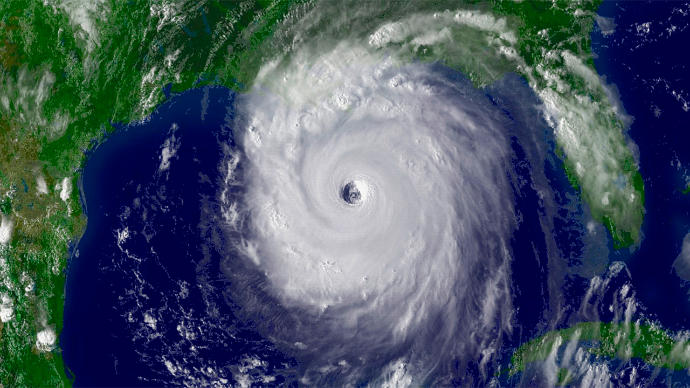
What is it like to live in hurricane country? Well, most of the time, not that bad actually. Thankfully storms aren't an every year occurrence for every place, and most are survivable with varying degrees of damage and after math, but every few years, a big one hits, and the story changes.
1. You can't be surprised by a hurricane
Hurricane season runs between June 1-November 30. When you live in hurricane country, you know the season is coming, but most don't spend much time preparing for it because for all the hurricanes that do occur doing the season, most hit somewhere other than where you live, don't even hit the US, aren't that powerful or end up being downgraded to tropical storms. An epic storm or one that causes massive damage may occur once every 5-10 years. The other reason you can't be surprised is because unlike a Tornado that can suddenly pop up, hurricanes have to start off shore, off land. Because of this, the oceans and seas are always being monitored by specialized weather planes in the sky. On average, for a storm that is set to hit landfall, you have about 4-8 days to prepare.
2. No one really worries until its Cat 4/5
People in hurricane country tend to fear the rain and flooding more than the actual winds of the hurricane. Flooding tends to stick around and last for days and the damage can be astronomical because once water gets into your house, combined with the heat of the summer, rot starts, mold starts, creatures invade, it's terrible, and insurance, even if you have flood insurance, can take years to do anything about it with all the people all of a sudden needing to collect and be assessed.
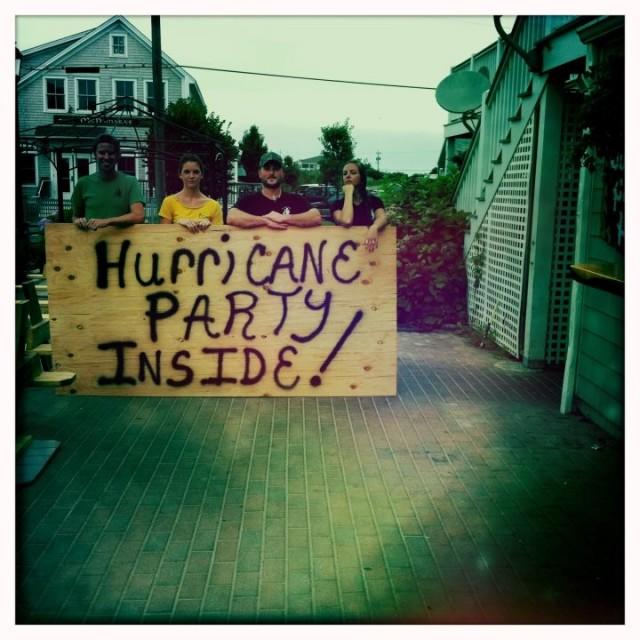
Usually it's like this. Cat 1-3, most people at most will go to a grocery store and buy out all the mostly non-perishables. You'll see bread, water, canned goods, and snack isles empty all around town, as well as batteries, flashlights, and wood to board up your home, generators, sold out. Most consider the storm a relatively good thing actually, because it usually means they get a day or two off from work/school/get out of tests/homework because all the roads are typically impassable and everything as per the cities orders is essentially shut down so that they can get people to stay home and avoid danger. Young people tend to throw parties, bars remain open as long as they can, lots of places will offer "hurricane" discounts to get people to come in where in most other areas, people are staying away. No one tends to leave for Cat 1-3.
You truly get used to living with hurricanes coming your way if you live along the coast or in hurricane prone areas like Florida which gets a record 40% of all hurricanes a year. Your home is typically reinforced in some way (or you may just get insurance), your home may be built on higher ground to avoid flooding and have storm shutters, and you can kind of gauge having been through a few, what's survivable. Most people prefer to shelter in place and stay in their homes and defend their castles.
People get really primal about it. They get on the news and say they want to stave off looters, and rebuild and clean and get back to their lives after a storm as quickly as possible rather than be told off by some police that they can't or won't be allowed back into their own neighborhoods. The down side of this mentality is that many storms do hit and people are able to recover, so they don't really think the next one is going to be worse than the one they lived through or lived through 10 years ago.
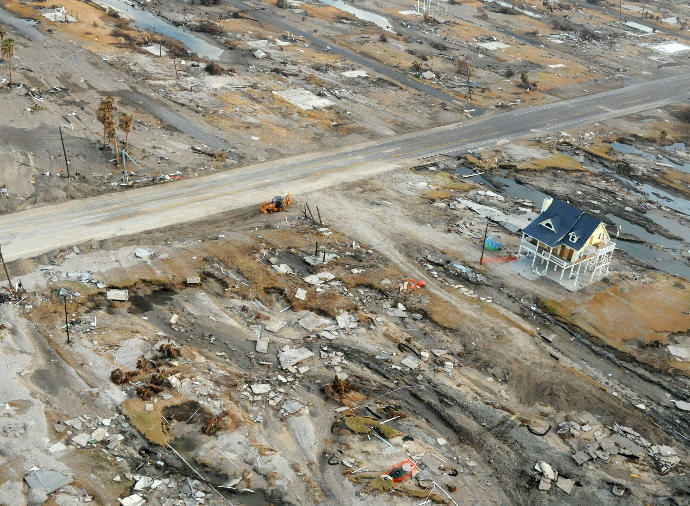
Most of this carefree, let's have fun and take a day off mentality all changes though when a storm is announced as being Cat 4 or 5 (which is the highest). Cat 4 and 5 storms are the really violently windy storms that are difficult to come out of intact, whether that's your home or you being injured or possibly killed by debris or high water. That typically is when you do get more of those hardened folks saying, they are going to "finally" leave because the smart ones, they know, there is a point at which you just have to let go of all your worldly possessions and just save your own life and that of your family.
3. The news gives the last will and testament
I don't mean that literally, but at a certain point right before landfall, the news stations will repeat the following message: Landfall is expected at this time. If you have not already left for higher ground or for a safer area, it is too late to do so safely and you need to shelter in place as best as you can away from any windows or objects that can fall on you and let someone know that you are staying in your home so that rescue can possibly help you afterwards. There will be absolutely no police, fire, rescue available during the hours of x and y. Emergency medical will not be able to get to you or help you in anyway.If you live along the coast line, and you are still in your home, you are risking certain death. That message is usually shortly followed by the shut down by the city of most of the power grid to protect against fires from falling electrical poles.
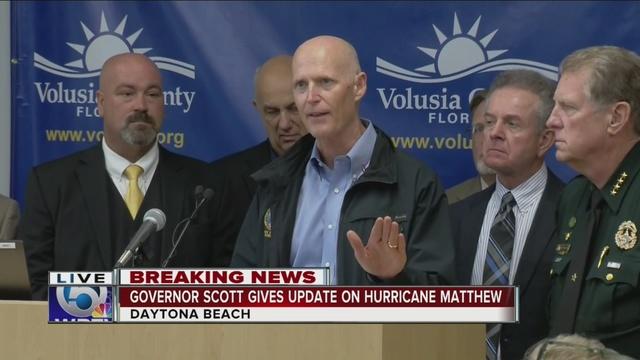
There were lots of people who did not head the warning about the coast where I live and after the storm, when the choppers went up to survey the damage, there were no houses left on the coast line. We're not talking like you could still see piles of wood where they had once been...no...it was the concrete slabs the houses were build on and nothing else. The only way you could even identify that homes used to be there, was to follow the camera view of the road that used to lead to all those houses. It truly is no joke, but every time, even with cities offering to help you evacuate, some people would literally rather die in their homes in a storm, than leave. And true to form, after a storm, they go door to door and put an X on your house and numbers that signify it's been searched, and if it was empty or they found bodies, or what not.
4. Gangs like to settle old scores
What may be a little known fact, is that often times gangs or people in general, use the time of a storm to enact revenge through violence and murder of their rivals. It is the perfect time for them with the city being so consumed with storms and recovery, that their crimes go unnoticed because no one has time for that. Often times by the time their misdeeds are discovered, it's far too late to do anything about it and with resources stretched thin with an entire city or town needing help, odds of someone being arrested are slim to none.
5. People just disappear
There are people who use the storm time to quite literally disappear. They figure people will blame what will eventually be declared, their death, on being swept away into the ocean or killed somewhere, and not on the fact that they simply got up and left of their own free will to seek out a new life somewhere else. People in trouble with the law, in debt, not happy with their lives...they simply walk off never to be seen by their loved ones again.
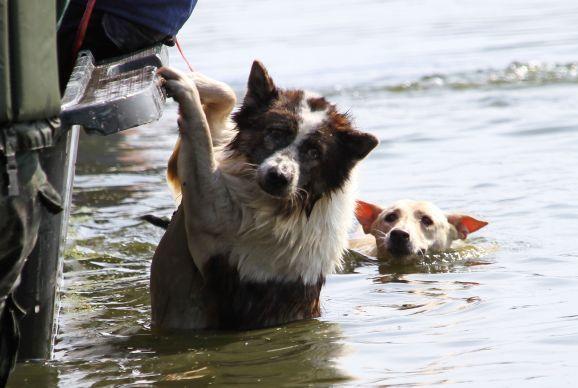
6. Fido gets left behind far too often
In the aftermath of a storm, people's dogs and cats and other pets are often found dead or roaming the streets hungry and scared. One third of pet owners have no disaster preparedness plans. Many shelters do not take pets for sanitation, space, and safety purposes, so unless you are lucky enough to have a friend/family somewhere safe to take you and your pet in or a plan, often times people feel like they have no choice but to leave their pets behind to fend for themselves.
7. It is the darkest thing you've ever seen and creepy quiet
You have never known darkness like you do after a storm. The first night is absolutely a shock to your system. You're used to street lights, house lights, store front lights, traffic lights, all the lights being on all the time at night, but it is 100% dark. You can't see anything in front of you. The only lights you can see are those from this or that passing car.

During the day, there is another unsettling feeling, and that is the absolute quiet. With no power, you don't hear air conditioner units running, any noise from any machines, or construction, or radios, or alarms, TVs, or anything. You walk outside and it feels like you are absolutely the last man or woman left on earth. I think more than the darkness, this feeling like no one else is out there, was the worst for me. Also the roadways and freeways are virtually empty. Everyone is trying to preserve gas and fire and rescue urge people to stay in place so that they can have the roads to better access people, so if you do waste your gas trying to drive around and see stuff, you don't see many cars.
8. "She" was the only one coming for you at one point
When the National Hurricane Center began giving official names to storms in 1953, they were all female. This practice of using only women’s names ended in 1978. Names can be retired if the storm causes massive damage. Retired names include Katrina, Andrew, Mitch and most recently Sandy.
*My heart goes out to those currently in Florida and Haiti who have or will be hit by Hurricane Matthew.
 Holidays
Holidays  Girl's Behavior
Girl's Behavior  Guy's Behavior
Guy's Behavior  Flirting
Flirting  Dating
Dating  Relationships
Relationships  Fashion & Beauty
Fashion & Beauty  Health & Fitness
Health & Fitness  Marriage & Weddings
Marriage & Weddings  Shopping & Gifts
Shopping & Gifts  Technology & Internet
Technology & Internet  Break Up & Divorce
Break Up & Divorce  Education & Career
Education & Career  Entertainment & Arts
Entertainment & Arts  Family & Friends
Family & Friends  Food & Beverage
Food & Beverage  Hobbies & Leisure
Hobbies & Leisure  Other
Other  Religion & Spirituality
Religion & Spirituality  Society & Politics
Society & Politics  Sports
Sports  Travel
Travel  Trending & News
Trending & News
Most Helpful Opinions